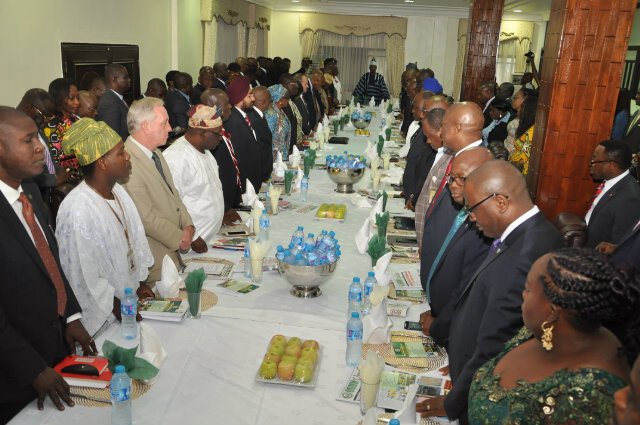
Nigeria’s Organised Private Sector (OPS) has called on the Federal Government to fulfill its promise to reduce the high-interest rates charged manufacturers by banks in the first quarter of 2018.
The interest rate, according to experts, which hovers around 17.86 percent for prime lending and 31.39 percent for maximum lending, continued to be detrimental to manufacturing growth and agribusiness expansion.
The President of Nigeria Association of Chambers of Commerce, Industry, Mines and Agriculture (NACCIMA), Iyalode Alaba Lawson, who led the call, lamented that the double-digit inflation rate that stood at 15.90 percent remains a source of worry, especially in the light of rising unemployment, currently put at 18.8 percent.
Lawson said if the situation continues, the survival of the manufacturing sector would be difficult.
Commending the activities of the Presidential Enabling Business Environment Council (PEBEC) in improving the ease of doing business in Nigeria, Lawson said she expects consolidation of the gains already recorded through the formulation and implementation of sound economic policies and programmes.
“These, in addition to an improved business environment, have the potential to bring about a reduction in the rate and encourage youth empowerment, while boosting the growth of SMEs and the implementation of the key activities in the Economic and Recovery and Growth Plan (ERGP – 2017-2020),’’ she stated.
Read also: Nigeria sues JP Morgan for $875m over negligence on Malabu oilfield deal
Describing the agriculture sector as the largest employer of labour and a contributor to the nation’s GDP, Lawson reiterated that it required more government intervention this year to meet local and export demand for foods and cash crops.
She said the association was interested in this sector’s ability to liberate the nation’s economy from the current quagmire it faces which culminated in the NACCIMA – NIRSAL agreement.
She reiterates the call for a single digit interest rate for manufacturing and agriculture sector to promote commercial agriculture, agribusiness activities, as well as more incentives for local producers of agricultural machinery and equipment.
She added, “We are worried about the rising spate of insecurity as this discourages investment in the economy by both local and foreign investors. We hope for significant improvement in security through further strengthening of all our security agencies and efficient securing of our borders.”
She expresses the hope that the manufacturing and mining sectors of the economy would receive more attention from the government through the implementation of policies, programmes, incentives, and products that engender the growth of small and large business, encourage more local and international investors and promote inclusive growth and development in all sectors of the economy.
For the economy to improve significantly, Lawson said it needs an increased growth rate of GDP, buoyed by the continuing stability of global prices of crude oil, which are currently above the budgetary targets.
“We believe that GDP growth rate will average 3.5 percent this year, in line with the prediction of the Medium Term Expenditure Framework (MTEF) 2018-2020. Inflation rate (Year on Year change) will continue to fall slowly, but will remain within double digits within the year, perhaps falling to as low as 12.5 percent,” she added.







